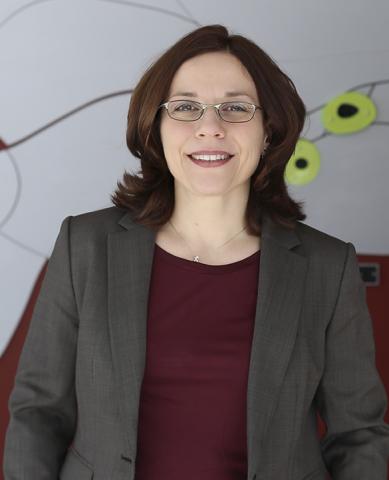Raffaella De Vita, Ph.D.
Professor and Associate Department Head
Department of Biomedical Engineering and Mechanics
STRETCH Lab
Virginia Tech
Seminar Information

The vagina is a complex fibromuscular organ with walls that are usually collapsed against each other. The same walls can, however, stretch a great deal during important physiological functions such as conception, pregnancy, and delivery. The remarkable deformations of this organ have not been characterized, despite their impact on women’s health. In this talk, I will offer an overview of the research being conducted in my lab to quantify the unique mechanics and complex microstructure of the vagina by combining advanced experimental, theoretical, and computational methods. The vaginal tissue was found to experience very large and highly inhomogeneous deformations in both the passive (relaxed) and active (contracted) states. Over time, the vaginal walls deform very quickly when the loads are first applied and more slowly as the same loads are sustained, revealing their inherent viscoelasticity. Even in the presence of tears, the vagina can undergo large deformations with collagen fibers re-orienting to slow the propagation of tears. Higher contractions occur in the proximal (closer to the cervix) region than in the distal (closer to the introitus) region due to the smooth muscle fiber distribution within the organ. Future research will explore how mechanical and microstructural properties of the vagina are altered in pathological conditions such as sexual dysfunction, maternal trauma, and pelvic organ prolapse.
Raffaella De Vita is a professor and associate department head in the Department of Biomedical Engineering and Mechanics at Virginia Tech. She received her Laurea in Mathematics from University of Naples II, Italy, in 2000 and her M.S. and Ph.D. from University of Pittsburgh in 2003 and 2005, respectively. She is the recipient of the American Society of Biomechanics President’s award, the NSF CAREER award, the PECASE Award, and several awards for research, teaching, and outreach excellence at Virginia Tech. She is a fellow of the ASME and AIMBE. She has served as an associate editor for the Journal of Elasticity since 2020 and as an associate editor for the Journal of Biomedical Engineering from 2017 to 2022. Her research focuses on determining the relationship between the mechanical behavior and the complex structure of biological systems using theoretical, computational, and experimental methods.
